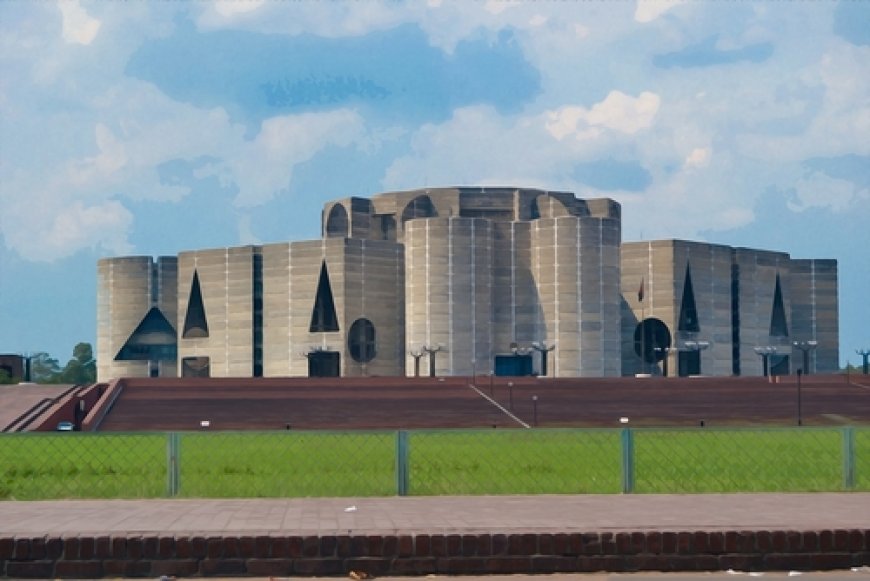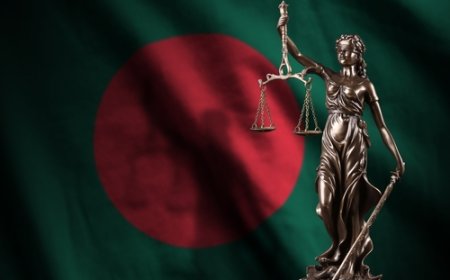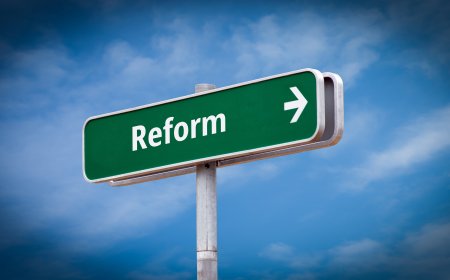PR Upper House 101
Everything you wanted to know about a proportional representation-based upper house and were afraid to ask

The Citizens’ Coalition symposium on constitutional reforms happened on May 11, with strong attendance from all political parties as well as the interim government and the Consensus Commission. I’ve put a summary video at the end of the post.
An upper house of the parliament with members proportional to the parties’ votes won in the lower house -- the PR upper house -- is shaping out to be the key constitutional reform. This post attempts to answer various questions I have come across on the issue.
Why an upper house?
Our 1991-2011 electoral democracy was one where one needed 151 MPs to become prime minister, in whose person (and persona), all powers were concentrated. The prime minister became the de facto queen of Bangladesh. With little meaningful to do in the parliament, MPs spent all their energy on local affairs. The ruling party MPs (or potential candidates) became de facto local nawabs. The opposition MPs (or potential candidates) spent all their time organizing local protests and fomenting dissent and grievances. After all, they would be elected on their performance at the local level, not the scant legislative work that could be done.
Over time, it meant people who could win an election did not necessarily have the acumen to be a good parliamentarian. And this happened before Sheikh Hasina rewrote the constitution to kill electoral democracy in 2011.
In mid-2010s, with the Hasina despotism at its nadir, the BNP had proposed an upper house to bring into parliament people who could be good parliamentarians -- hold the executive into account, scrutinize legislation, and so on. Thus was the upper house first seriously proposed.
Did BNP have a detailed proposal?
No, it didn’t. One must remember that under the fallen regime, one was at risk of detainment, torture or unlawful abduction for working with the BNP. It’s not at all a surprise that the idea for the upper house was not fleshed out. How would the members be elected? What kind of powers would they have? These were to be worked out later. The 31-points proposed a constitutional reform commission that would look into these issues, as part of a review of the constitution.
What is the PR upper house?
In Bangladeshi political context, the electoral symbol is a key factor for most voters. The idea for the PR upper house is that the membership of the upper house reflects the votes won by parties across the country in the general election for the 300 lower house MPs.
Let’s illustrate this with examples. In 1991 election, BNP won around 31 percent of total votes, against Awami League’s 30. Under a 100-member PR upper house, the parties could have 31 and 30 seats in the chamber respectively (it’s a bit more complicated -- see below). In 2001, the parties’ vote shares and potential upper house seats would have been 41 (percent) for BNP and 40 (percent) for AL.
What are the alternatives?
Quite a few!
One option is to directly elect the upper house members. But it is not at all clear what would be the point of electing 100 upper house members in addition to 300 MPs. Essentially, for each three MP, there would be an upper house member. If the upper house members have the exact same incentives and constraints as the MPs, they would be compelled to get involved in the local matters. The result would be local conflicts, not a better legislature.
Another option, often seen in federations, would be to have the upper house members represent districts or divisions. But this would face the same problem as above. And more importantly, Bangladesh is not a federation. In federations, the upper house typically represents states, and large states (like Texas) have the same numbers as small ones (like Idaho). This is to ensure that larger states, with more lower house seats, don’t dominate the smaller ones. These issues are not really relevant in Bangladesh.
Yet another option is to have the incumbent government appoint upper house members. This is usually the case in a number of European constitutional monarchies, including the United Kingdom. In fact, BNP mentioned the House of Lords in its original proposal. But this idea is not appropriate for Bangladesh. First, we don’t have hereditary aristocracy, and why would we want to introduce one? Second, such a system would likely become yet another vehicle for cronyism and hackery.
Yet another option, which is what the BNP is proposing, is to have the membership reflect the seats won in the lower house. That is, BNP had 140 seats in 1991 against AL’s 92 -- so in a 100 member upper house BNP could have 47 member against AL’s 31.
So there are two options on the table at the moment?
Sort of. There is the BNP option. There is the PR upper house, which is what the Citizens’ Commission proposed, and is supported by smaller parties. And there is the Ali Riaz Commission proposal, which adds five seats to a 100 member PR upper house that are to be appointed by the president.
Which one is better?
To the extent that the main reason for an upper house is to have better parliamentarians, either system could work (or fail to -- see below). However, a PR upper house could also provide other very crucial safeguards for our democracy, which make it a much better alternative than the BNP proposal.
Recall the lower house is elected on a first past the post system, which can lead to lopsided results. For example, BNP it suffered its worst defeat in 2008, when it won more votes than the 31 percent it got in 1991!
To the extent that the lower house remains as it currently is, with the cabinet reflecting lower house majority, a PR upper house is more representative of the popular support of the parties. This alone could improve the parliamentary deliberations under the PR upper house than BNP’s proposal.
Of course, the more power the PR upper house has, potentially the better, up to a point at least.
The Citizens’ Coalition proposes that the upper house members do not initiate any legislation -- that remains the prerogative of the lower house (and in practice, the majority party). It can, however, provide input into any legislation that is not a money bill. Constitutional amendments, however, would need to pass the upper house as well as the lower house. This is important. We know from experience that a party with 40 percent vote can easily win a two-thirds majority and can amend the constitution to suit its partisan agenda. This can be prevented by making a PR upper house passage mandatory for constitutional amendment.
The Citizens’ Coalition further proposes that the PR upper house vets and appraises various constitutional commissions and institutions of accountability -- for example the Election Commission, the Anti-Corruption Commission and so on. We have a history of the incumbent governments politicising these important institutions. Everyone recognises that this must be avoided. And the PR upper house can provide an important way to ensure that rampant politicisation is avoided in future. Just imagine that someone of the moral fiber of our current president is nominated by a future government to, say, the Anti-Corruption Commission. If the nominee is vetted in a televised interview, any opposition upper house member could sink the nomination and become a national star. That is the stuff we want our politics to be about!
Finally, the Citizens’ Coalition proposes that the Upper House plays a key mechanism through which the election-time governments are chosen -- I will post separately on this
What issues remain unresolved?
A lot of details are yet to be worked out.
What happens to the votes going to the independent candidates in the lower house? This is not a mere academic question. Historically, independent candidates had received 5-10 percent votes. As the AL will not likely be on ballot in the next election, there is a high chance that many of its votes could go to independents. How would their votes translate into upper house?
What about threshold to get into the upper house? The Ali Riaz Commission proposes a one percent threshold -- that is, any party getting less than one percent lower house vote gets no upper house seat. The Badiul Alam Mazumdar Commission proposes a three percent threshold. A lower the threshold is arguably more representative, but can also result in more fringe candidates. A sufficiently high threshold would, on the other hand, end up with a one party upper house. To the extent the idea is to improve the parliamentary performance and ensure accountability over the executive branch, there is an optimum level of threshold -- the trick is to figure out where that might be!
The composition of the upper house committees for the vetting functions and their functioning mechanisms need to be worked out. Similarly, it remains to be decided whether constitutional amendments in the upper house could pass with a simple majority or a super majority will be required.
Then there is the question of lists. When would the parties choose the members? How would we ensure that people with criminal records don’t get into parliament? Would the rich not simply buy their seats through donations? These concerns could be addressed by requiring the parties publish their lists sufficiently before the elections, with the Election Commission vetting them for inappropriate nominees.
These are the issues that the parties would need to negotiate and determine.
What’s the downside risk and how to prevent it?
The PR upper house is no panacea. Nothing is. No constitutional design can ensure democracy. The price of liberty is eternal vigilance, as Thomas Jefferson might never have said. The PR upper house could go wrong very quickly if parties send people like the current president into the chamber.
While this possibility cannot be ruled out, there are grounds for optimism. Let’s not forget that BNP wanted an upper house precisely because it recognised the need for quality legislators.
However, the crucial test for the PR upper house in the next parliament will come from the opposition members. The upper house members are not supposed to be concerned with local matters. But suppose an opposition upper house member wants to become an MP in the next election? If they spend their time and energy on their locality instead of committee work in Dhaka, then the whole point of the PR upper house is lost.
What's Your Reaction?














































































